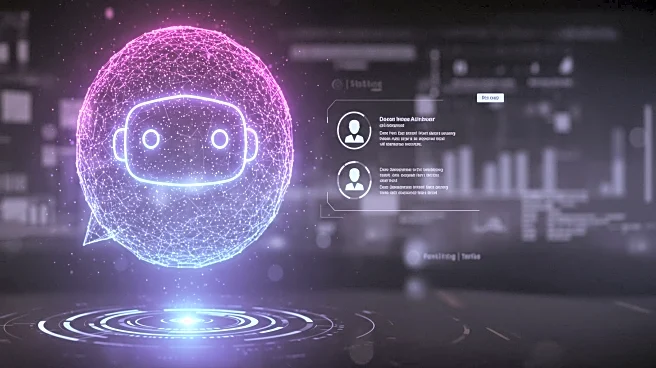What's Happening?
Artificial intelligence chatbots are increasingly being used as a tool for question-and-answer interactions, offering a new way to access information beyond traditional search engines. These chatbots, such as Microsoft's Copilot, provide users with the ability to ask questions and receive detailed answers, often accompanied by links for further exploration. Copilot, which was launched in February 2023, is available in both free and paid versions, with the latter offering more advanced features. Users are encouraged to ask specific and concise questions to maximize the effectiveness of the chatbot's responses. The technology is designed to mimic conversational interactions, allowing users to refine their queries and add context as needed. However, users are advised to verify the information provided by AI chatbots, as they can sometimes produce inaccurate or biased results.
Why It's Important?
The rise of AI chatbots represents a significant shift in how individuals access and process information. By providing a more interactive and personalized approach to information retrieval, these tools have the potential to enhance productivity and decision-making across various sectors. For businesses, AI chatbots can streamline customer service operations and improve user engagement. In the realm of public policy and education, they offer new avenues for disseminating information and fostering informed discussions. However, the reliance on AI-generated content also raises concerns about data privacy and the accuracy of information, necessitating careful consideration and verification by users.
What's Next?
As AI chatbots continue to evolve, their integration into everyday technology is expected to expand. Developers may focus on improving the accuracy and reliability of these tools, addressing issues related to data privacy and misinformation. Businesses and educational institutions might increasingly adopt AI chatbots to enhance communication and information dissemination. Additionally, regulatory bodies could explore guidelines to ensure ethical use and prevent potential misuse of AI-generated content. The ongoing development of AI technology will likely lead to more sophisticated and user-friendly interfaces, further embedding chatbots into daily life.
Beyond the Headlines
The widespread use of AI chatbots could lead to broader cultural and ethical implications. As these tools become more prevalent, they may influence how individuals interact with technology and perceive information. The potential for AI to shape public opinion and decision-making processes underscores the need for transparency and accountability in AI development. Furthermore, the integration of AI chatbots into healthcare and other sensitive areas raises questions about the balance between technological innovation and human oversight.









